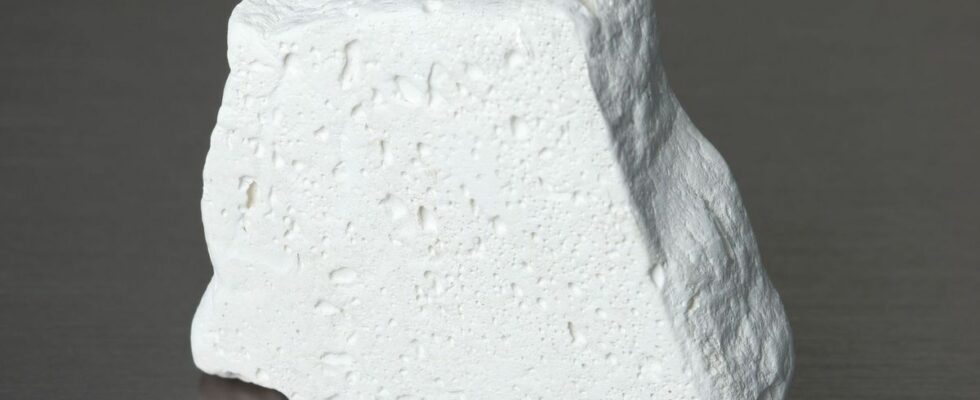Published on
Updated
Reading 2 mins.
TikTok challenges often come from outlandish ideas. The latest: eating kaolin, a kind of clay that can be found in nature. But although it is a natural element, it is strongly discouraged to eat it.
Kaolin is currently the subject of a challenge on the TikTok platform. Indeed, young people film themselves consuming this white clay, which cracks and then melts in their mouths… They even compare it to chocolate, but it is far from without risk to health.
What is kaolin?
Kaolin is a kind of white clay composed of aluminum silicate, an element that is found in its raw state in nature. It also sometimes enters into the composition of certain medicines or porcelain, paper and glass objects.
Traditionally, women from sub-Saharan Africa, the Maghreb or Guyana consume it during their pregnancy, although this substance presents dangers for themselves and their future baby.
#kaolin: videos viewed millions of times
But in recent weeks, this trend has arrived in France, and videos of young people filming themselves eating the substance are therefore flourishing on the platform, to the point of reaching millions of shares of the hashtag #kaolin. Still, some recognize problems:I can’t stop, I’m too addicted“; “I knew I was hooked from the moment I started commuting an hour every four days to buy some” or “It should not be swallowed, to avoid health problems“…
Different risks related to the consumption of kaolin
Those who take kaolin explain how to do it “to soothe their menstrual pains” or for “other healing and digestive properties“. But nothing has been scientifically proven in this regard, concerning kaolin.
On the other hand, the experts point to four other main problems:
- A risk of anemia: indeed, koalin has the ability to capture iron from the body, which leads to serious deficiencies in people who consume it, with all the associated risks: shortness of breath, fatigue, heart palpitations, dizziness…
- A risk of exposure to heavy metals : Composed mainly of aluminum silicate, Kaolin can contain lead or arsenic, depending on where it was mined and produced. By consuming it in a significant way, intoxication with these metals, by accumulation in the blood, is possible;
- A risk of constipation : kaolin, crossing the digestive tract, will mix with the stool and change its composition, which will cause constipation. It can get worse and in the most severe cases, surgery may be needed to unclog the colon.
- A risk of addiction to this substance : without really knowing why, the consumption of kaolin can become addictive. The person in a state of dependency must be referred to an addiction service for treatment.
